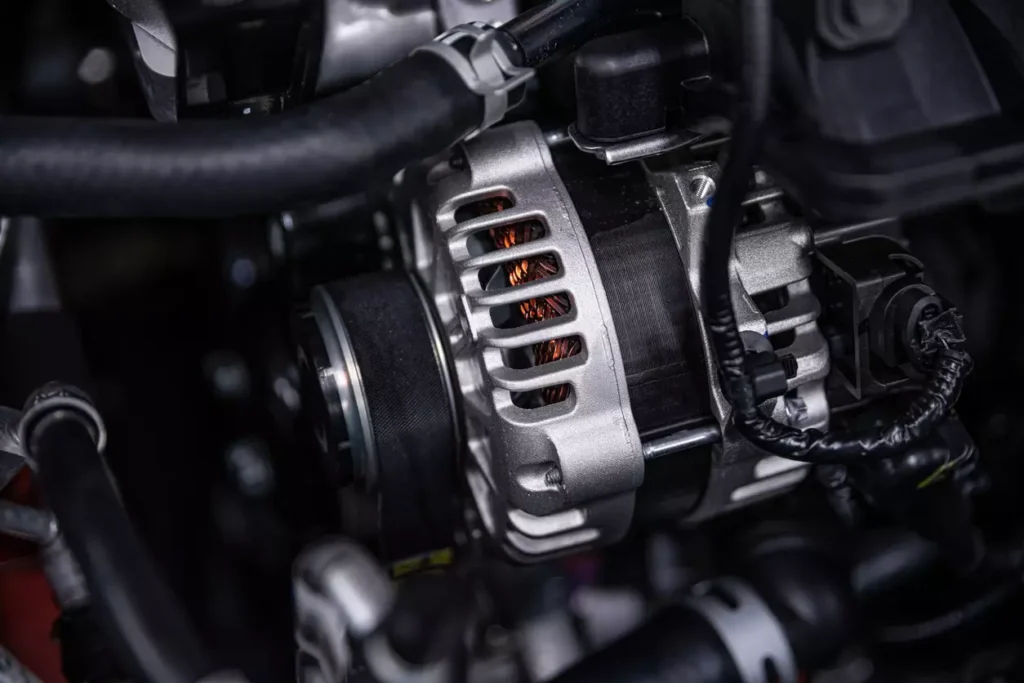A car battery running flat can be one of the most frustrating experiences for any driver. Imagine preparing for an important meeting or a long-awaited road trip, only to find your car won’t start because the battery is dead. It’s a common yet perplexing problem that can leave many scratching their heads. So, what drains a car battery when the car is off? Let me explain the various factors that can contribute to this annoying issue and how to prevent it.
Parasitic Drain Explained
Parasitic drain is a term used to describe the continuous use of electrical power by components in your car even when the engine is off. Every car has a certain amount of parasitic drain to keep the clock running, the alarm system armed, and other systems operational. But excessive parasitic drain can be problematic.
Unplugged devices like phone chargers, GPS systems, or even dash cams can still draw power. Additionally, interior lights, glove compartment lights, and trunk lights can sometimes stay on due to faulty switches, continuing to sap power. Identifying and mitigating parasitic drains involves a bit of detective work but can save your battery.
Faulty Wiring and Electrical Issues
Electrical issues can be a silent battery killer. Damaged or frayed wiring can cause short circuits, leading to a continuous power drain. Over time, the insulation on wires can wear out, exposing them and making them prone to shorting out. This not only drains the battery but can also lead to more significant electrical problems.
Regular inspections and maintenance of your car’s electrical system can help detect these issues early. Keeping an eye on any warning signs such as flickering lights or unusual sounds can also help catch electrical issues before they become serious problems.
The Role of the Alternator

The alternator is supposed to recharge the battery while the car is running. If the alternator is faulty, it might not charge the battery properly, leading to a gradual depletion of battery power. A faulty alternator can sometimes draw power even when the car is off, which exacerbates the issue.
Checking the health of your alternator can be done with a multimeter or by taking your car to a mechanic. If the alternator is the cause, replacing it should resolve the issue and prevent future battery drains.
Alarm Systems and Electronic Accessories
Modern cars come equipped with sophisticated alarm systems and electronic accessories that can inadvertently drain the battery. Aftermarket alarms, remote start systems, and other electronic add-ons can sometimes be wired incorrectly or draw too much power.
Ensuring that these systems are installed by professionals and regularly checked can prevent them from becoming a drain on your battery. Additionally, understanding how these systems operate and ensuring they are used properly can help maintain your battery’s health.
Extreme Weather Conditions
Weather can play a significant role in the health of your car battery. Extremely cold weather can cause the battery to lose its charge more quickly. In contrast, extremely hot weather can increase the rate of evaporation of the battery’s fluids, leading to a weaker battery.
Parking in a garage or shaded area, using a battery blanket in cold climates, or ensuring proper ventilation in hot weather can help mitigate these effects. Regular checks during extreme weather conditions can also help you stay ahead of potential battery issues.
Human Error: Lights and Accessories Left On
One of the simplest yet most common reasons for a drained battery is human error. Leaving headlights, interior lights, or other accessories on can quickly deplete the battery. It’s easy to forget to turn these off, especially if you’re in a rush or distracted.
Developing a habit of checking that all lights and accessories are off before leaving the car can save you a lot of trouble. Many modern cars have warning systems for this very reason, but it’s always good to double-check.
The Age of the Battery
Like any other component, car batteries have a finite lifespan. Over time, batteries lose their ability to hold a charge. An old battery may not be able to power the car’s systems as effectively, leading to a higher chance of it draining even when the car is off.
Regular testing and knowing the age of your battery can help you anticipate when it might need replacing. Most car batteries last between three to five years, so keeping track of its age can prevent unexpected dead battery issues.
Faulty Ignition Switch
The ignition switch is responsible for starting the car’s electrical system. If it is faulty, it may not turn off completely, continuing to draw power from the battery. This issue can be tricky to diagnose but is essential to address.
Consulting with a mechanic to inspect the ignition switch and replace it if necessary can prevent unnecessary battery drain and ensure your car starts reliably.
Battery Corrosion and Maintenance
Corrosion on the battery terminals can interfere with the charging process, leading to a depleted battery. The build-up of corrosion can prevent the battery from receiving a full charge or cause it to lose charge more quickly.
Regular cleaning of the battery terminals with a solution of baking soda and water can help prevent corrosion. Additionally, ensuring that the battery connections are tight and secure can aid in maintaining a good charge.
GPS Trackers and Telematics Devices
Many vehicles, especially fleet vehicles, are equipped with GPS trackers and telematics devices that continually draw power from the battery. While these devices are essential for monitoring vehicle location and performance, they can also contribute to battery drain if not managed properly.
Regularly monitoring the power usage of these devices and ensuring they are in good working order can help manage their impact on your battery.
Unnecessary Use of Car Electronics
Modern cars come equipped with a series of electronic features such as infotainment systems, seat warmers, and advanced climate controls. While these features enhance comfort, they can also be a significant drain on the battery if used excessively when the engine is off.
Being mindful of using these features only when necessary and ensuring they are turned off when not in use can help conserve battery power.
Battery Health Monitoring Systems
Some modern vehicles come equipped with battery health monitoring systems that provide real-time data on the battery’s status. These systems can alert you to potential issues before they become significant problems, helping you take proactive measures to maintain your battery’s health.
Familiarizing yourself with how these systems work and regularly checking the battery status can help you stay ahead of any potential battery issues.
Long Periods of Inactivity
Leaving your car unused for long periods can lead to battery drain. Even when the car is off, small amounts of power are used to keep systems running. Over time, this can deplete the battery, leaving it dead when you return.
Using a trickle charger or disconnecting the battery if you plan to leave your car unused for an extended period can help prevent this issue. Additionally, starting the car and letting it run for a few minutes periodically can help keep the battery charged.
Conclusion
A car battery that drains when the car is off can be a frustrating and perplexing problem. What drains a car battery when the car is off? From parasitic drains and faulty wiring to weather conditions and human error, numerous factors can contribute to this issue. Understanding these potential causes and taking proactive measures can help you maintain your battery’s health and prevent unexpected dead battery situations.
Regular maintenance, being mindful of how you use your car’s electronic systems, and staying aware of the battery’s age and condition are crucial steps in ensuring a reliable start every time you turn the key. By taking these steps, you can minimize the risk of battery drain and enjoy a more dependable driving experience.

